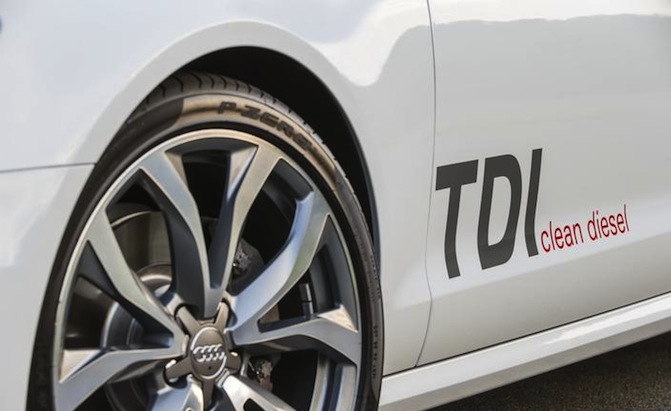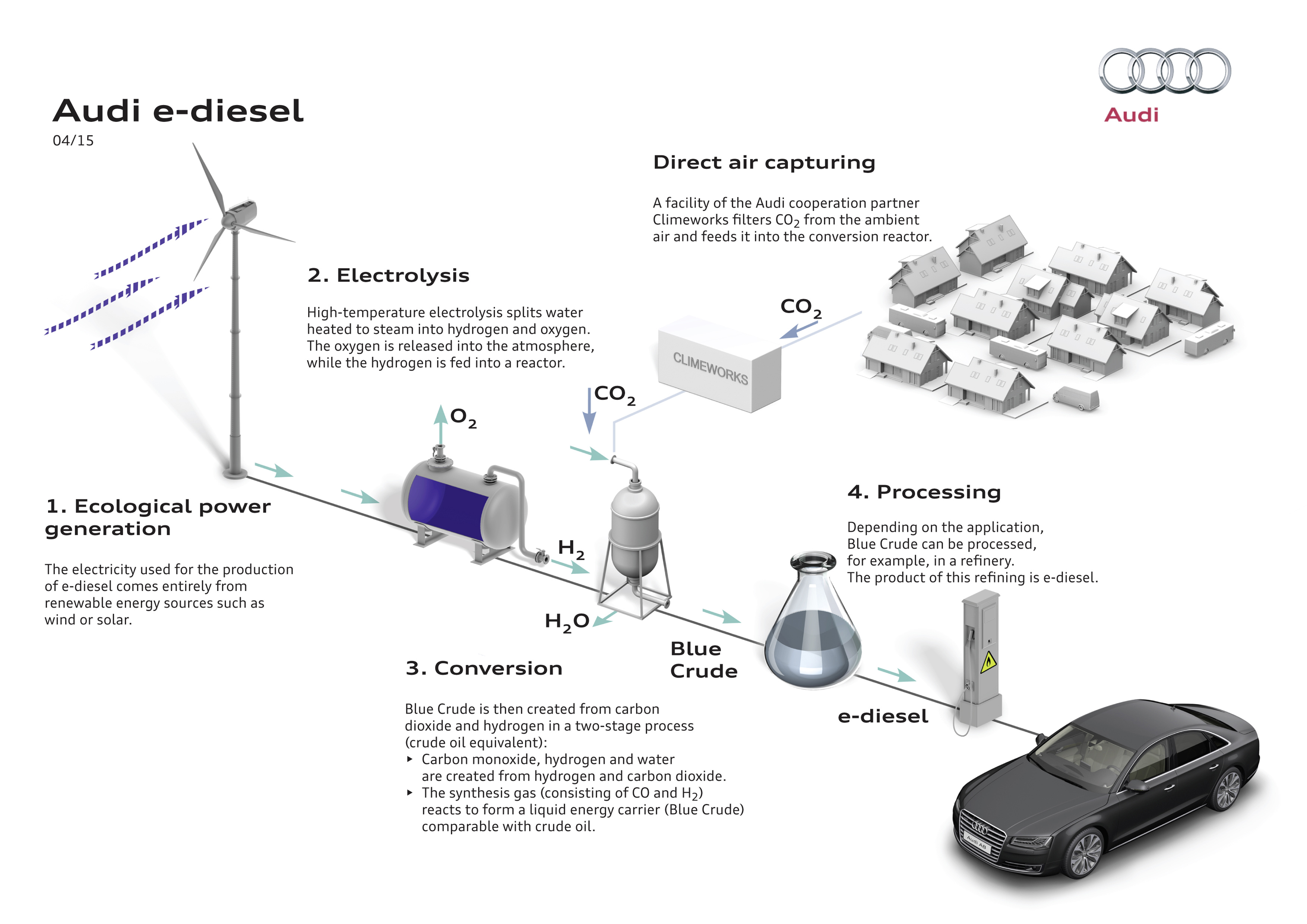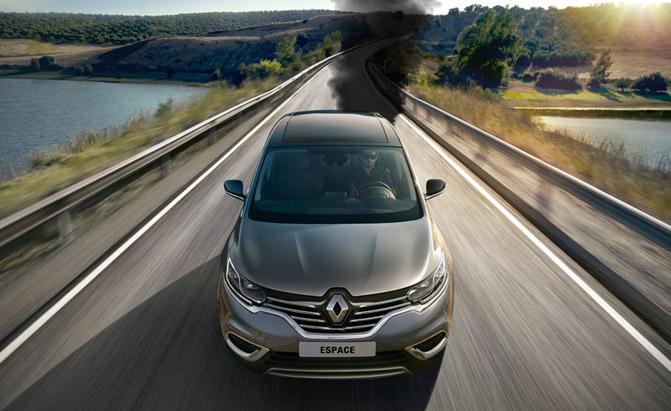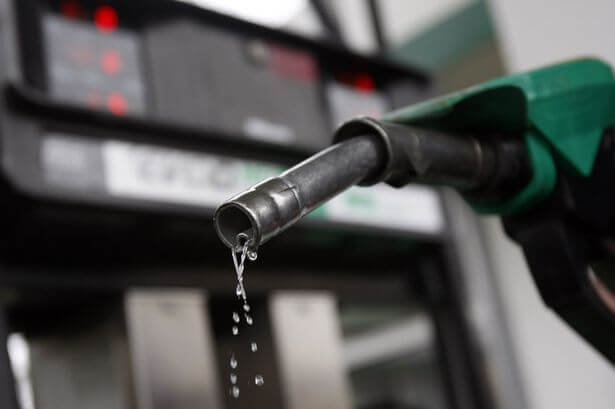
Turning water and c02 into fuel for cars might seem like something more akin to historical feats of religious spectacle but the boffins at Audi may have just done just that.
Audi have recently produced their first batch of what it calls e-diesel. This magical fuel is a synthetic diesel based solely on readily available resources (h20 and co2) that don’t require costly and often dangerous extraction processes as seen in fossil fuels.
The process itself requires just water and Co2. Firstly the water is broken down into hydrogen and oxygen by means of high-temperature electrolysis. The resulting hydrogen reacts with the CO2 in synthesis reactors, again under pressure and at high temperature. This reaction produces a liquid made from long‑chain compounds, known as blue crude. Like fossil fuels, blue crude can be refined into fuel, namely Audi’s e-diesel.
Audi’s e-diesel is free from sulphur and aromatic hydrocarbons, it’s high cetane content means e-diesel readily ignitable. Audi’s initial testing has suggested the fuel is suitable for combining with regular diesel and may well be a fuel in it’s own right in the future.
Production of e-diesel from their purpose built plant in Dresden‑Reick is set to continue with plan to produce over 3,000 liters (792.5 US gal) of Audi e‑diesel over the coming months.

Reiner Mangold, Head of Sustainable Product Development at Audi, sees Audi e‑diesel and Audi e‑fuels in general as an important component that complements electric mobility: “In developing Audi e-diesel we are promoting another fuel based on CO2 that will allow long‑distance mobility with virtually no impact on the climate. Using CO2 as a raw material represents an opportunity not just for the automotive industry in Germany, but also to transfer the principle to other sectors and countries.”
We look forward to the further development of what could be a game changer in how we fuel not only vehicles but also processes still reliant on fossil fuels. We’ll keep you posted!
[ad]
Source: Audi




